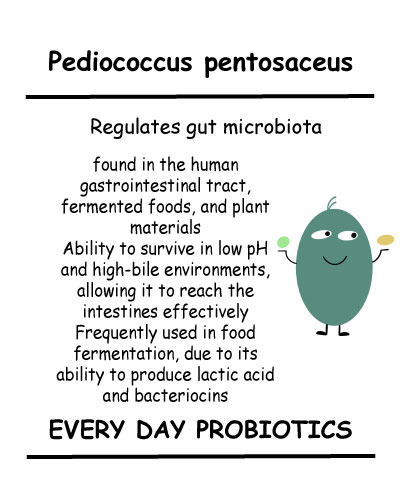
Pediococcus pentosaceus
1 Kilogram(100 Billion CFU/gm)
Overview
found in the human gastrointestinal tract, fermented foods, and plant materials
Ability to survive in low pH and high-bile environments, allowing it to reach the intestines effectively
Frequently used in food fermentation, due to its ability to produce lactic acid and bacteriocins
Function
Regulates gut microbiota
Produces antimicrobial compounds: produces bacteriocins, which inhibit pathogens such as listeria and salmonella
aids in fermentation: plays a key role in the fermentation of vegetables, dairy, meat, and grains
Health Benefits
Supports gut health
Boosts immunity
Aids in digestion
Inhibits harmful pathogens